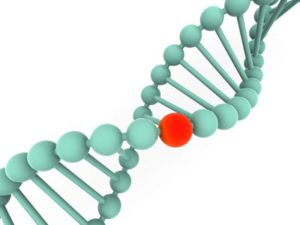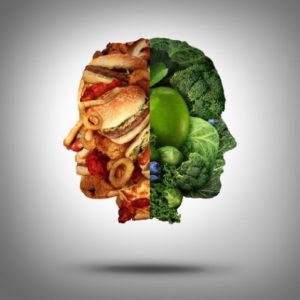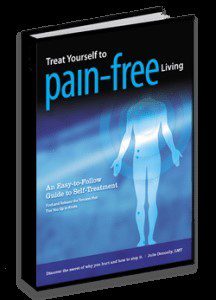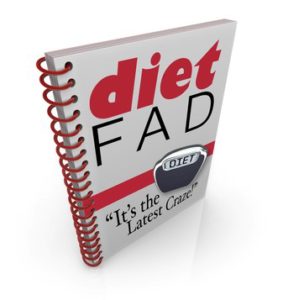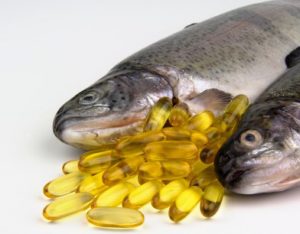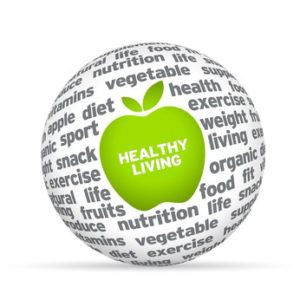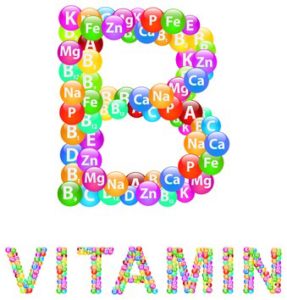What Should You Look For In A Prenatal Supplement?
Author: Dr. Stephen Chaney
 According to the CDC, almost 10% of the women in this country will develop diabetes during pregnancy, something referred to as gestational diabetes. After delivery, their blood sugar levels will usually return to normal.
According to the CDC, almost 10% of the women in this country will develop diabetes during pregnancy, something referred to as gestational diabetes. After delivery, their blood sugar levels will usually return to normal.
However, gestational diabetes is not a benign condition. It increases your risk of serious complications during both pregnancy and delivery. It also increases the risk that your baby will suffer complications during birth, and it increases their risk of developing obesity and diabetes later in life.
Obesity and a family history of diabetes both increase the likelihood that you will develop gestational diabetes during pregnancy. Beyond that, what could be gestational diabetes causes are not well known.
There have been numerous suggestions in the literature that high folate levels may increase your risk of gestational diabetes. If that is true, it is concerning. After all you are being told you should probably be taking a folic acid supplement before and during pregnancy to prevent birth defects. Could the very supplement you are taking to prevent birth defects be harming both you and your unborn child?
Before you throw out your folic acid supplements, I should hasten to add that the science is not definitive. Some studies have reported an association between high folate levels and gestational diabetes. Other studies have seen no association. It has been very confusing. No one has been able to figure out why the study results have been so inconsistent.
In this issue of “Health Tips From The Professor,” I share a study that may clear up the confusion.
How Was The Study Done?
 This study (Lai et al, Clinical Nutrition, doi: 10.1016/j.clnu.2017.03.22 ) was part of a larger study, “Growing Up in Singapore Towards Healthy Outcomes” (GUSTO). The larger study was designed to assess multiple factors related to the health of pregnant mothers and their offspring. This particular study was designed to assess whether there was an association between high blood folate levels and gestational diabetes in Asian women.
This study (Lai et al, Clinical Nutrition, doi: 10.1016/j.clnu.2017.03.22 ) was part of a larger study, “Growing Up in Singapore Towards Healthy Outcomes” (GUSTO). The larger study was designed to assess multiple factors related to the health of pregnant mothers and their offspring. This particular study was designed to assess whether there was an association between high blood folate levels and gestational diabetes in Asian women.
The investigators recruited 923 women of Chinese, Malay, and Indian descent when they were less than 14 weeks pregnant. The women returned to the clinic at 26-28 weeks of pregnancy. Fasting blood samples were obtained for analysis of plasma folate, B12, and B6 levels. Gestational diabetes was diagnosed during the same clinic visit based on a fasting blood glucose level followed by a second blood glucose test 2 hours after ingestion of 75 grams of glucose. The women also completed a diet recall during this office visit.
Do High Folate Levels Cause Gestational Diabetes?
When the data were analyzed:
- A high blood level of folate was associated with a 30% increase in gestational diabetes.
- A high blood level of B12 was associated with a 20% decrease in gestational diabetes.
- A high blood level of B6 showed no association with gestational diabetes.
 When the investigators looked at the association between folate status and gestational diabetes in each of the ethnic groups individually, they discovered that the association between high blood folate levels and gestational diabetes occurred almost entirely in the Indian women.
When the investigators looked at the association between folate status and gestational diabetes in each of the ethnic groups individually, they discovered that the association between high blood folate levels and gestational diabetes occurred almost entirely in the Indian women.
This offered an important clue. A high proportion of the Indian women were following a vegetarian diet, which could predispose to B12 deficiency. When the investigators looked at both folate and B12 status, they found:
- A high blood level of folate combined with B12 insufficiency was associated with a 97% increase in gestational diabetes.
- A blood level of folate in women with normal B12 status showed no association with gestational diabetes.
What Does This Study Tell Us?
This is a single study, and it is based on associations which do not prove cause & effect. Additional studies are clearly needed to prove this hypothesis. However, if these data are confirmed, this study has several interesting ramifications.
#1: It offers a possible explanation for the inconsistencies of previous studies looking at the associations of high folate status with gestational diabetes. Most previous studies simply measured folate status without looking at B12 levels. This study suggests it is important to assess both folate and B12 status. Elevated blood folate levels may only predispose to gestational diabetes in populations that are also B12 deficient.
#2: This study suggests a previously unknown interaction between folate and B12. This is not simply a case of high folate levels masking the symptoms of B12 deficiency. The prevalence of gestational diabetes was much greater when blood folate levels were elevated than it was with B12 deficiency alone. In other words, folate made the symptoms worse. The authors offered a potential mechanism for this interaction, but it was speculative. In short, we simply do not understand the mechanism of this interaction at present.
What Does This Study Mean For You?
 If this study is confirmed, it has several important implications for any woman who is pregnant or is considering becoming pregnant.
If this study is confirmed, it has several important implications for any woman who is pregnant or is considering becoming pregnant.
#1: Methyl folate offers no advantage over folic acid: These data are based on blood folate levels, not on folic acid intake. Methyl folate and folic acid are equally likely to increase blood folate levels.
#2: B12 supplementation is important if you are vegetarian or are restricting meat intake: This is just a reminder of what you have probably heard before. There are many potential causes of B12 deficiency. However, in the younger age range, vegetarianism is the most common cause of B12 deficiency.
#3: A holistic approach to supplementation is better than taking individual vitamins. In this case, it is clearly preferable to take a supplement containing both folic acid and B12 than one just containing folic acid or methyl folate. That is an important message. You are constantly being reminded that optimal folate status is important for a healthy pregnancy. It is easy to find supplements containing just folic acid or methyl folate. Avoid those supplements! Look for ones that contain both folic acid and B12 (preferably with B6 and the other B vitamins as well). The same holds true for prenatal supplements. Make sure they contain all the B vitamins in balance, not just folic acid.
So, could high folate levels be one of the gestational diabetes causes? We simply don’t know yet.
The Bottom Line
- Recent headlines have suggested that high blood folate status is associated with an increased risk of developing gestational diabetes during pregnancy. This raises the question as to whether the supplementation you have been told was essential to prevent birth defects could also put you at risk for another health problem.
- The study actually showed that high blood folate status only increases the risk of gestational diabetes in women who are also B12 deficient.
- If you are pregnant or thinking of becoming pregnant, this study has several important implications for you.
- Methyl folate offers no advantage over folic acid. These data are based on blood folate levels, not on folic acid intake. Methyl folate and folic acid are equally likely to increase blood folate levels.
- B12 supplementation is important if you are vegetarian or are restricting meat intake. This is just a reminder of what you have probably heard before.
- A holistic approach to supplementation is better than taking individual vitamins. In this case, it is clearly preferable to take a supplement containing both folic acid and B12 than one just containing folic acid or methyl folate. That is an important message. You are constantly being reminded that optimal folate status is important for a healthy pregnancy. It is easy to find supplements containing just folic acid or methyl folate. Avoid those supplements! Look for ones that contain both folic acid and B12 (preferably with B6 and the other B vitamins as well). The same holds true for prenatal supplements. Make sure they contain all the B vitamins in balance, not just folic acid.
- For details, read the article above.
These statements have not been evaluated by the Food and Drug Administration. This information is not intended to diagnose, treat, cure or prevent any disease.
















